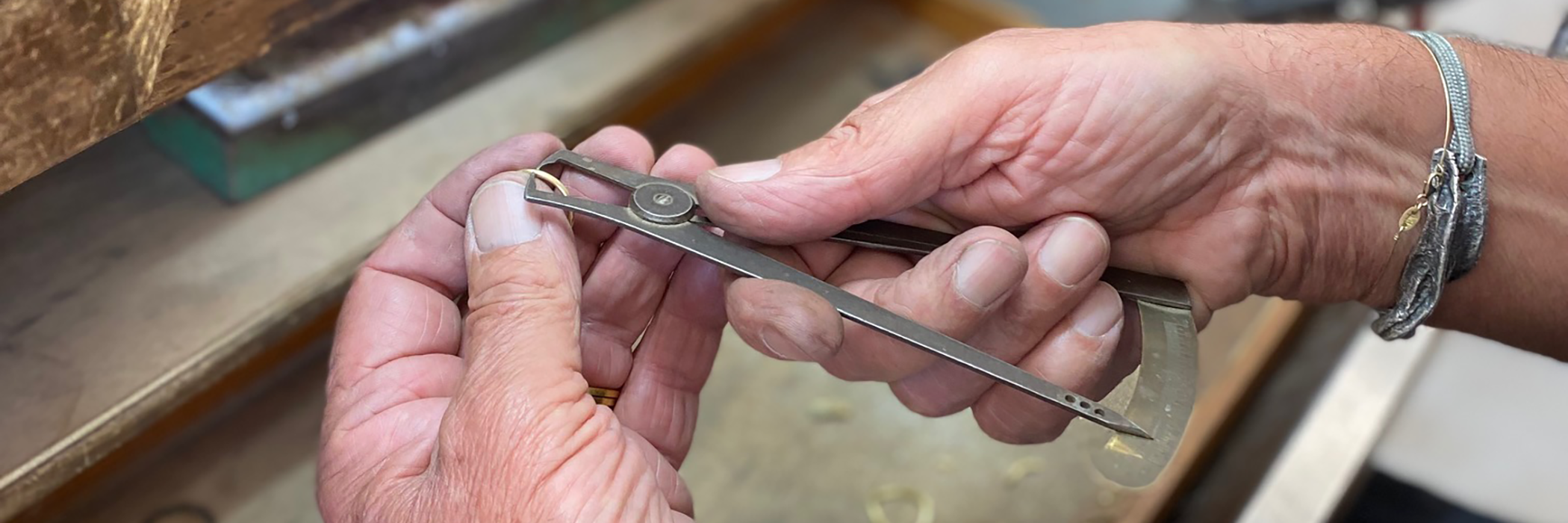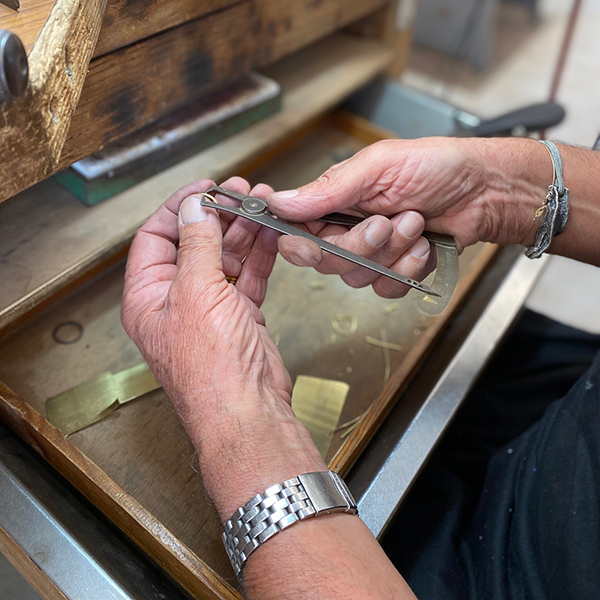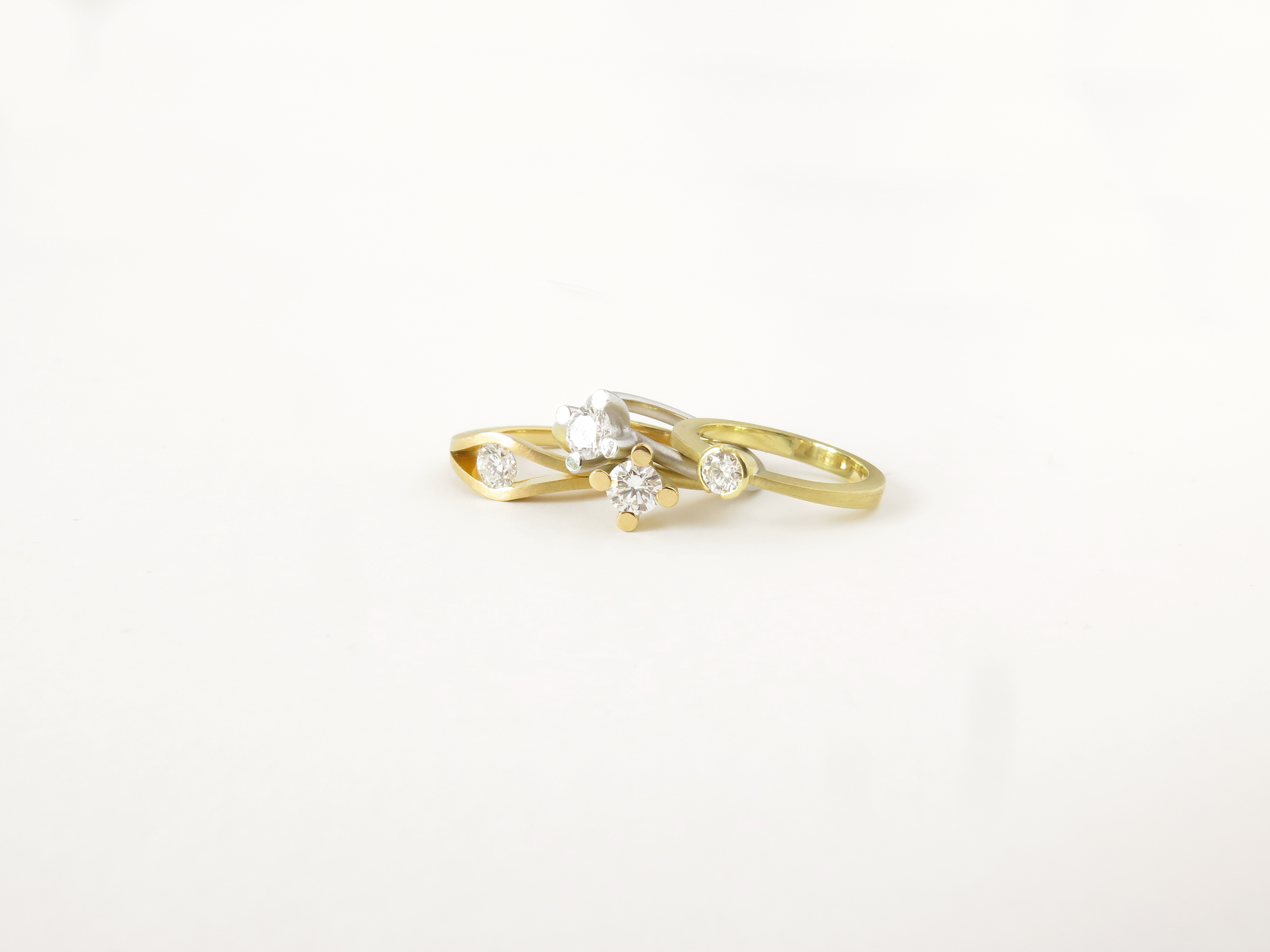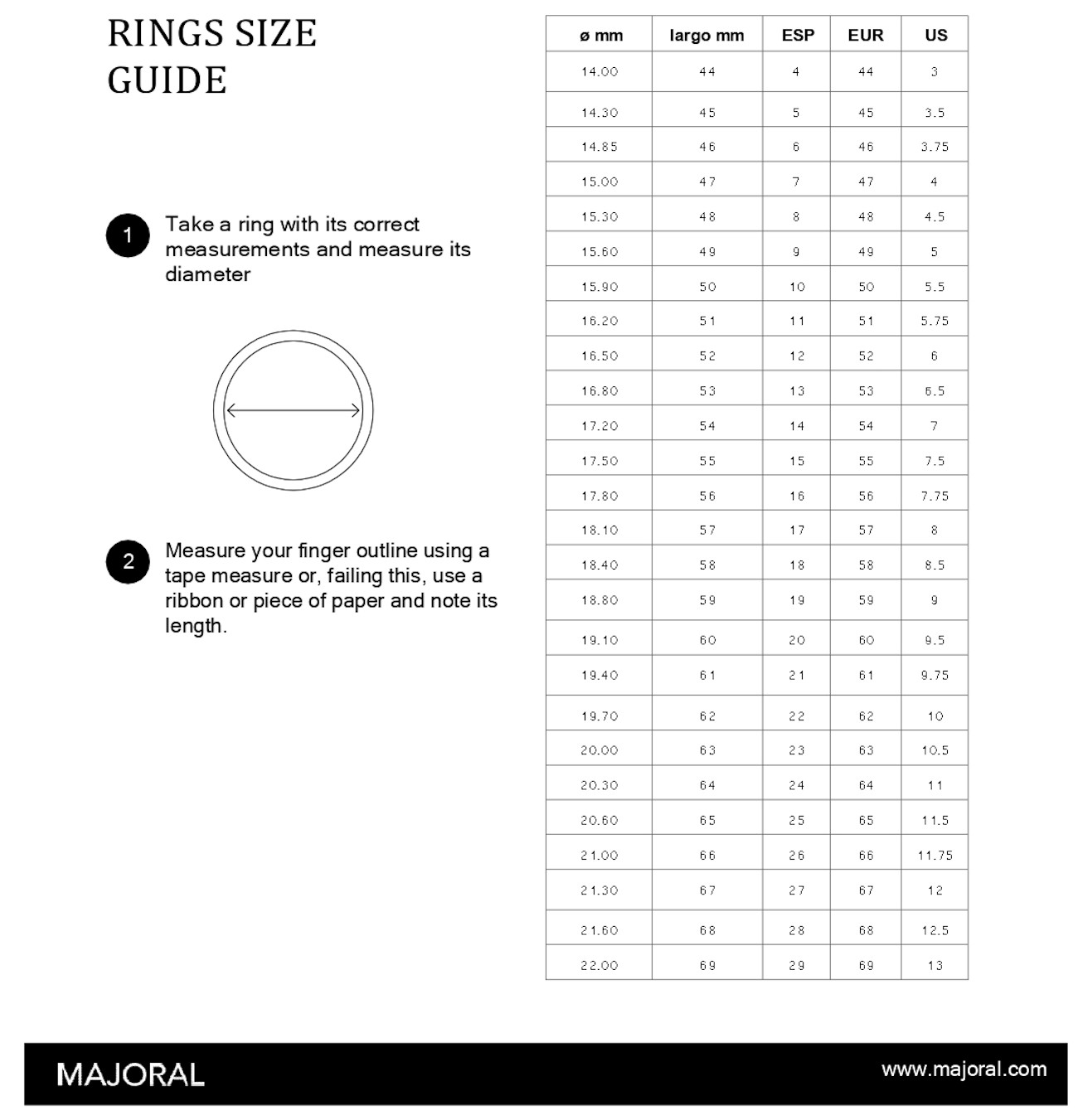
FAQS about responsible jewellery: 5 questions to ask your jeweller in order to identify a responsible item of jewellery
Here at Majoral we have prepared a small FAQS about responsible jewellery. These five questions will allow you to check whether the item you are buying really does adjust to principles of fair and responsible jewellery.
1. The jewellery you produce, where is it made?
Majoral’s jewellery is designed and created in our workshops in Barcelona and Formentera, where we use a combination of artisanal and traditional techniques alongside modern systems such as laser cutting and 3D design. There are currently seven jewellers working in our workshops, whose names are Sandra, Arnald, Anna, Felix, Mariana, Enric and Roc.
We also collaborate with a network of trusted artisan workshops located in the Barcelona area that help us make up the stocks for our shops, following strict requisites of control and quality of our responsible jewellery.
This hands-on and local production system, with limited stocks, enables us to maintain a high degree of control over the quality and traceability of our product.
2. Do you know where the gold you use comes from?
Yes, in fact today all of Majoral’s gold jewellery is made with Fairmined certificated gold or recycled metal certified by the Responsible Jewellery Council (RJC). Every item of jewellery includes a seal that shows what type of metal has been used for its creation.
Since 2014, we have been using Fairmined certificated metal, and currently the gold comes mainly from the Multiactiva Agrominera cooperative in the district of Iquira (Colombia). The project combines artisanal mining with the traditional production of coffee in the area. The cooperative undertakes its work in a responsible way regarding the environment and ensuring safe working conditions.
The aim of the Fairmined certification is to legalise small-scale artisanal mining exploitations around the world, establishing safe, responsible, and respectful ways of working.
Additionally, in some collections recycled gold is used certified by the Responsible Jewellery Council (RJC), an organisation that brings together the big companies of the sector and which establishes international standards of sustainability for the industry.
.jpg)
3. Can the metal be recycled?
Precious metal has always been reused. Traditionally, in jewellery workshops it involves making the most of all the metal during production, casting it and endeavouring not to waste it. It is therefore reused, but it is also recyclable.
When we speak of recycled metal (as in the case of the RJC certificate), we refer to gold that comes from a product that has become obsolete, has been purified and recast in order to give it a new use, lengthening the life cycle of the metal.
Majoral works with conflict-free gold refiner suppliers according to the CFSI (conflict-free sourcing initiative) directive, which enables us to ensure our recycled gold does not come from any region in conflict.
4. And the diamonds and coloured gems? Where do they come from?
It is important to differentiate diamonds from coloured gems since they involve distinct challenges in terms of sustainability.
In the case of diamonds, historically they have had a serious impact on the environment. The enormous geopolitical complexity of extracting diamonds means that even today it is not possible to know 100% the origin of the diamonds. Unlike Fairmined gold, in the case of the diamond there are no guarantees of knowing their authentic traceability from the mine of origin to the end client.
This is why Majoral is committed to creating a limited number of pieces, in order to maintain a good control and comply with the ethical and quality standards that we set ourselves. In this way, we offer an alternative for all our clients who wish to make a conscious purchase.
Since 2018 Majoral has been committed to using certified diamonds with the creation of the Diamond Ethical Symbol collection, our line of diamonds of more than 25 carats. These diamonds come from conflict-free countries that offer guarantees with the environment and human rights. They have been analysed in the GIA laboratories (Gemmological Institute of America), one of the two leading authorities in diamond certification. Each diamond includes a certificate of quality and has an individual code engraved on the girdle – visible with a microscope – that provides the description of its unique and specific qualities.
At Majoral we work to extend the standards of responsible jewellery within the sector in all jewellery with diamonds.
Regarding coloured gems, we place special emphasis on the sapphires of the Sapphire Ethical Symbol collection. We have established a trusting link with Wennick-Lefèvre, our supplier of natural sapphires, who have personal dealings with artisanal mines that respect the environment. The gems are extracted in Madagascar and Sri Lanka and they collaborate with the artisanal workshops where the sapphires are cut.
5. Do you know your suppliers?
Responsible jewellery requires a mechanism of projects, people and companies committed to standards that respect the environment, the people and the setting along the entire value chain of the activity. From the extraction of the precious metals to the purchase of the piece of jewellery by the consumer. Working with people who share our values enables us to provide jewellery that we feel proud of.
 Cookie preferences
Cookie preferences



